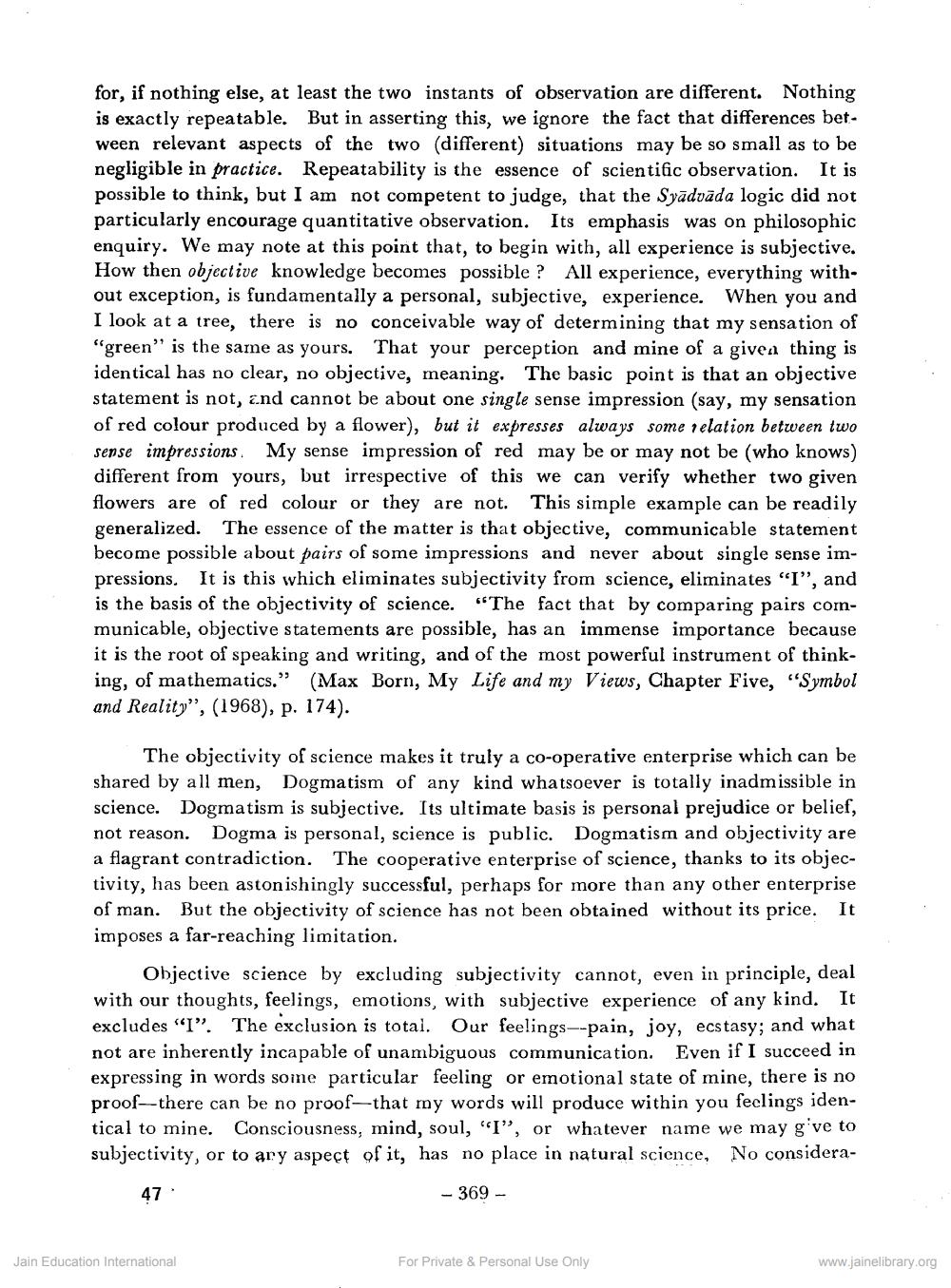Book Title: Reality and Physics Some Aspects Author(s): D S Kothari Publisher: Z_Kailashchandra_Shastri_Abhinandan_Granth_012048.pdf View full book textPage 5
________________ for, if nothing else, at least the two instants of observation are different. Nothing is exactly repeatable. But in asserting this, we ignore the fact that differences between relevant aspects of the two (different) situations may be so small as to be negligible in practice. Repeatability is the essence of scientific observation. It is possible to think, but I am not competent to judge, that the Syādvāda logic did not particularly encourage quantitative observation. Its emphasis was on philosophic enquiry. We may note at this point that, to begin with, all experience is subjective. How then objective knowledge becomes possible ? All experience, everything without exception, is fundamentally a personal, subjective, experience. When you and I look at a tree, there is no conceivable way of determining that my sensation of “green” is the same as yours. That your perception and mine of a given thing is identical has no clear, no objective, meaning. The basic point is that an objective statement is not, and cannot be about one single sense impression (say, my sensation of red colour produced by a flower), but it expresses always some relation between two sense impressions. My sense impression of red may be or may not be (who knows) different from yours, but irrespective of this we can verify whether two given flowers are of red colour or they are not. This simple example can be readily generalized. The essence of the matter is that objective, communicable statement become possible about pairs of some impressions and never about single sense impressions. It is this which eliminates subjectivity from science, eliminates "I", and is the basis of the objectivity of science. "The fact that by comparing pairs communicable, objective statements are possible, has an immense importance because it is the root of speaking and writing, and of the most powerful instrument of thinking, of mathematics." (Max Born, My Life and my Views, Chapter Five, "Symbol and Reality”, (1968), p. 174). The objectivity of science makes it truly a co-operative enterprise which can be shared by all men, Dogmatism of any kind whatsoever is totally inadmissible in science. Dogmatism is subjective. Its ultimate basis is personal prejudice or belief, not reason. Dogma is personal, science is public. Dogmatism and objectivity are a flagrant contradiction. The cooperative enterprise of science, thanks to its objectivity, has been astonishingly successful, perhaps for more than any other enterprise of man. But the objectivity of science has not been obtained without its price. It imposes a far-reaching limitation. Objective science by excluding subjectivity cannot, even in principle, deal with our thoughts, feelings, emotions, with subjective experience of any kind. It excludes "I". The exclusion is total. Our feelings--pain, joy, ecstasy; and what not are inherently incapable of unambiguous communication. Even if I succeed in expressing in words some particular feeling or emotional state of mine, there is no proof--there can be no proof-that my words will produce within you feelings identical to mine. Consciousness, mind, soul, "I", or whatever name we may give to subjectivity, or to ary aspect of it, has no place in natural science, No considera 47 - 369 - Jain Education International For Private & Personal Use Only www.jainelibrary.orgPage Navigation
1 ... 3 4 5 6 7 8 9 10
